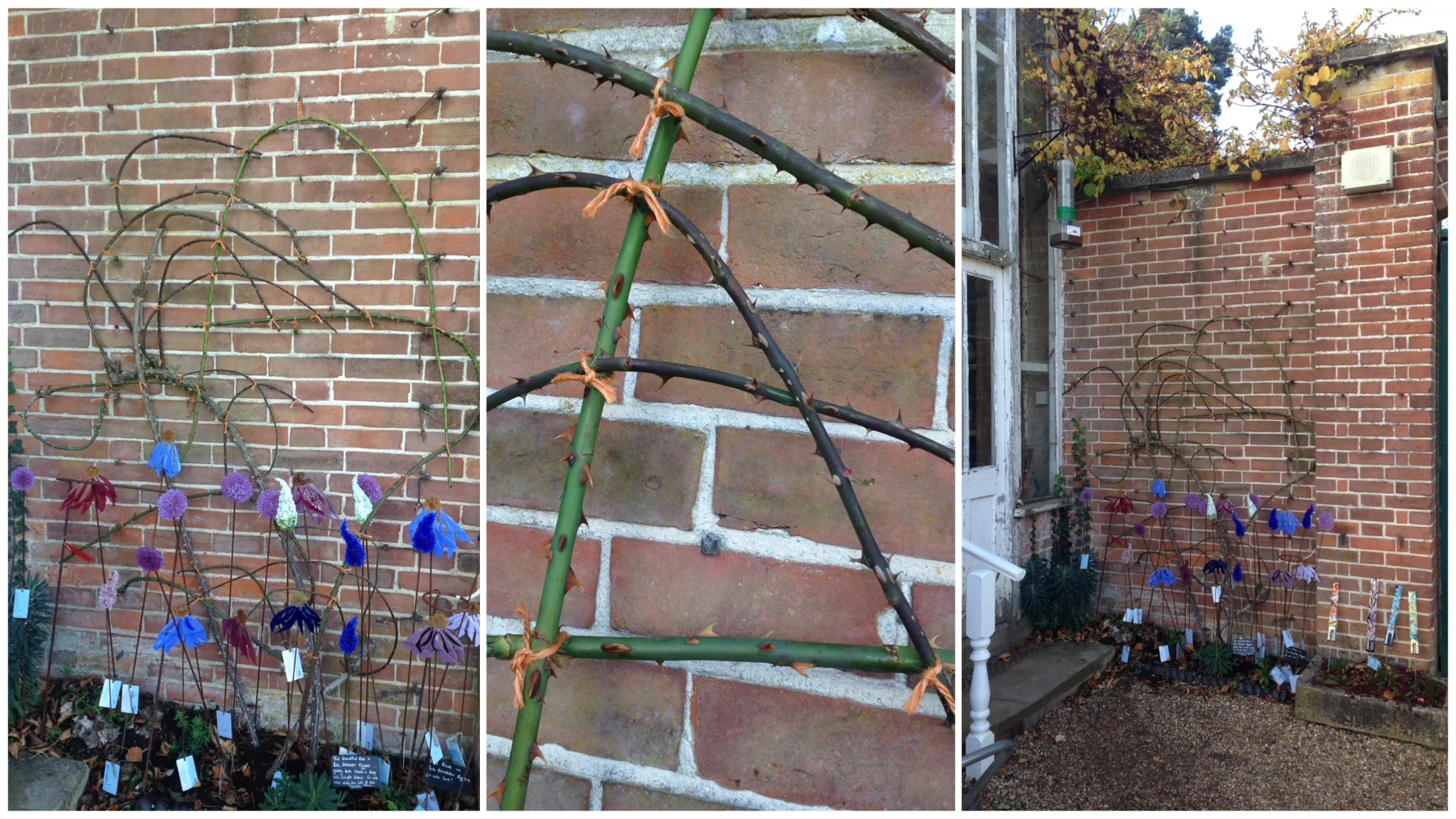Cutting back the roses - what we can learn from nature's dormant periods
Working in The Walled Nursery, I see the season change all around me - the autumn pruning, feeding the soil to last through the winter. Working here is such a wonderful opportunity to be inspired by nature’s rhythmns and, as always, I wonder what we can learn from her process.
Even though our lives have become more mechanical and more technological we're still deeply held in nature, deeply connected to nature, and we are powerfully influenced, albeit often unconsciously, by the rhythms and seasons of our surroundings.
Working within The Walled Nursery and living in this rural part of the world, perhaps we we can take our cues from nature, and think about what we can learn from nature's cycle at this time of year.
Last week, as I was walking through the nursery to the hut, Emma was doing one of her favourite jobs - rose pruning - and leading a tutorial on how to do it and why. She explained why it was so necessary to do this prep so that the roses will really flourish next season. Nourishment, light and energy are reduced in winter, so removing the dead wood and deadheading summer’s blooms ensures that this reduced energy is focused only in sustaining growth, rather than being wasted on the remnants of last season’s enterprises. She was making a cut and I heard her say:
“You want lush floral growth, not woody bark - nothing will grow from that”
The roses in the height of summer - full bloom!
Oh what a lesson to take! And that got me thinking about the emotional pruning that we would benefit from doing at this time of year, at a time when our energy reserves are running a bit low, our immune systems are a bit dented, and the nights are drawing in - how to focus our energies, and shift into the new season.
I know we’re not encouraged to live seasonally in our culture that prizes relentless production, but our pre-programming to shift with the season far predates capitalism; we hold this in our bones. We are designed to slow down a bit in the winter: to eat the abundance to get us through the lean months, to shift our rhythm and draw in; the activity that was sustainable in the long summer days is now much harder, much slower, much heavier. In the past, generations would have hibernated more; without electricity we would have gone to bed earlier and we would have had more sleep. And whilst we like to think of ourselves as so very advanced, in evolutionary terms, our nervous systems aren’t much different all these years later.
And, whilst our culture might not be accommodating of us all suddenly deciding to hibernate, the shifting season is an opportunity for a bit of an emotional autumn tidy up - a time to cut away some of the projects that are no longer working for us, and really focus our reduced energy on the essentials. In gestalt therapy, a model I integrate into my practice, there is the concept of ‘the fertile void’ - the chance to rest after a period of change and growth, to acknowledge and celebrate the growth that has come before. The fertile void is not a period of nothingness; rather, a period of stillness with the faith that growth is still occurring in the void. It’s in this void that new growth and inspiration can emerge. Autumn and winter provide the opportunity for this fertile void - a chance to wait, to plan, to anticipate.
Trimmed back for the darker months, secured and stable
So it's worth having a think… what do we need to do to prune your emotional garden? When there are less nutrients in our ‘emotional soil’ at this time of the year, is there non essential activity we can weed out between the necessary shrubs and plants of our life, so that we can focus our energy on growing the healthier parts of ourselves through this small dormant season ready for the new energy of spring?
The gathering in of autumn’s harvest - the colours!
And how can we add nutrients to our emotional soil? Self care can be seasonal too. As one client once said to me, ‘this is soup and Strictly season’. To allow ourselves to settle into the rest time, the layers, the carbs. When the seasons change, our self care needs also transform. To put it another way - garden care in the spring might be planting seeds for veggies, but in the autumn it might look like packing away the BBQ so it doesn’t get rusty. What is lingering from last season’s self care that can be put away until the weather changes?
This week, Emma and Paul are spreading ten tonnes of manure on the flower beds here; to protect all the growth that is going on under the surface - the growth we can’t see, at the root, but in which we must have faith until we start to see the results poking through in the spring. The bulbs are being planted in anticipation of spring bursting forth. What looks dormant and dead is not; it’s just that the growth has gone underground. Like nature, perhaps we would benefit from allowing ourselves the same opportunity to turn inwards.















